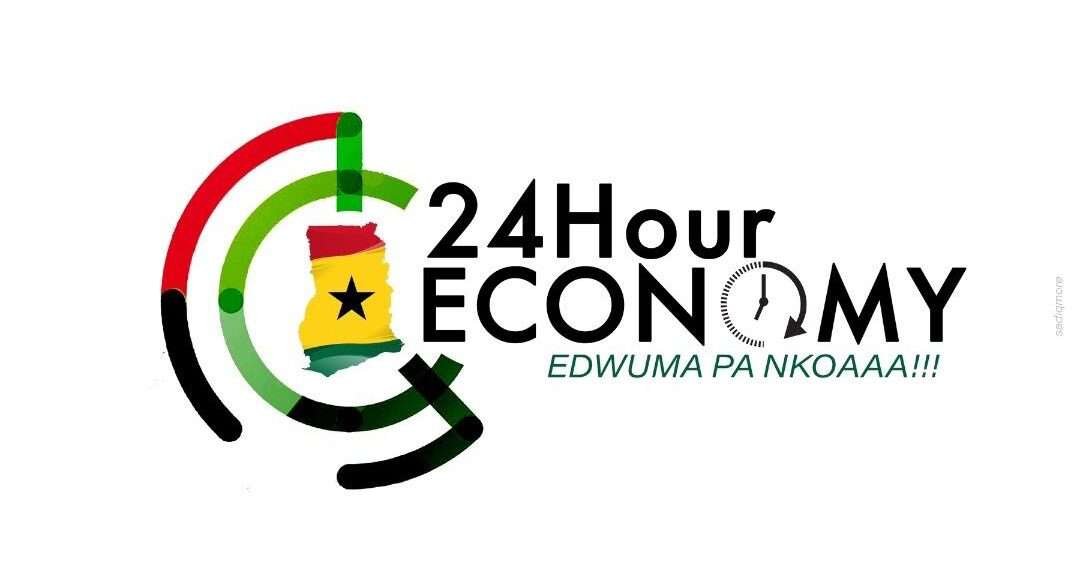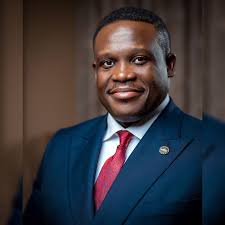According to Joyce Mogtari Bawah, Special Aide to NDC flagbearer John Mahama, the concept of a 24-hour economy is not a mere idealistic vision, but a practical idea that can be successfully implemented and yield tangible benefits.
She emphasized that with government backing, the 24-hour economy policy will yield a range of benefits, including higher-paying jobs, increased employment opportunities, and improved economic prospects, leading to more sustainable and resilient employment options and driving economic growth even in challenging times.
“In my humble opinion this profoundly important policy will create the following to ensure that we all build the Ghana we want together with the Incoming John Mahama administration; Introduce three shifts where possible; Both in the private and public, formal, semi-formal and informal sectors”.
“Public Sector agencies such as the audit service which has been inundated with complaints about delays because reports are years behind time, passport office, DVLA, Tourism which thrives on the night economy. Fix transportation by prioritizing the railways and improving commuting”
Joyce Mogtari Bawah
Madam Bawah further emphasized that the manufacturing sector will be a crucial focus, with the government offering a range of support mechanisms and incentives to the private sector, including tax exemptions, modernization and upgrading of equipment, access to financing, and the revitalization of failed banks.
Joyce Bawah also mentioned that new policies related to vehicle and ship maintenance, including the construction of vehicle assembly plants, repair yards, and rehabilitation facilities, will additionally fuel the policy initiative.
She also highlighted the plan to establish a Workers Brigade, which will provide specialized support and services tailored to the needs of workers.
“A Youth in Agriculture, with support and incentives, tax holidays, and tax moratorium for start-ups for agro-processing for exports”. – Joyce Mogtari Bawah
Moreover, Joyce Bawah emphasized that while demand is crucial, it can also be fostered and increased, pointing out that besides tapping into the vast export market, internal demand can also be stimulated through supply-induced demand, where the availability of goods and services can create new demand opportunities.
Transportation Providers To Stimulate Demand
Furthermore, Joyce Mogtari Bawah pointed out that transportation providers, such as airlines and shipping lines, can stimulate demand by establishing new routes, citing examples like the Accra-Kumasi and Accra-Takoradi air routes, which did not exist a few years ago but are now thriving due to demand generated by their creation.

She also emphasized that similar opportunities for demand stimulation exist for routes like Accra-Bolgatanga and other city pairs, which can also benefit from the creation of new transportation links.
“The public and private sector bus services were birthed because of demand, sometimes demand must also be supply-driven”. – Joyce Mogtari Bawah
She stated that by enhancing security and visibility, businesses like shops and filling stations will be able to operate extended hours, safe in the knowledge that they are secure, and ancillary services will also benefit from this improved environment.
“She pointed out that while Meridian Port Services (MPS) and Ghana Ports and Harbor Authority (GPHA) operate 24/7, supporting services do not, but with the right incentives, all stakeholders will work around the clock, facilitating efficient document processing, clearance, and reduced demurrage and clearing times at the port, streamlining the entire process.
“Corruption – so much money goes to waste, same can be saved for example the $58 million expended on the National Cathedral, 11.9 million dollars spent on the nonexistent Pwalugu Dam, the $12 million PDS wasted expenditures can all be recovered and would be used to create incentives for the private sector and support the government wage bill”.
Joyce Mogtari Bawah
“Energy will be key in the 24-hour economy. Cheaper power through the Time of Use policy will provide cheaper electricity for Manufacturing companies and businesses – and there will be additional Incentives for renewable energy”.
Additionally, she stated that fishing and fish processing are 24/7 industries globally, and Ghana can adopt this model to boost productivity.
As such she emphasized that the government can offer the necessary security, incentives, and support to the private sector to enable the successful implementation of the policy and drive economic growth.
“Building and construction projects are mostly designed to operate 24/7 and can be undertaken in a 24-hour working cycle. The incoming John Mahama administration will be intentional and deliberate about the implementation of this policy by developing regulations, introducing tax breaks and tax incentives, and creating an effective and more enabling environment for businesses all across the country with the main focus on reducing unemployment rates and improving sustainable employment opportunities for all and in all sectors of the economy”.
Joyce Mogtari Bawah
Joyce Bawah confidently stated that the successful implementation of the Mahama 24-Hour Working Economy initiative would provide a comprehensive solution to Ghana’s current unemployment challenges, effectively addressing the issue and driving economic growth.
READ ALSO: Chinese Premier Expected In Malaysia




















